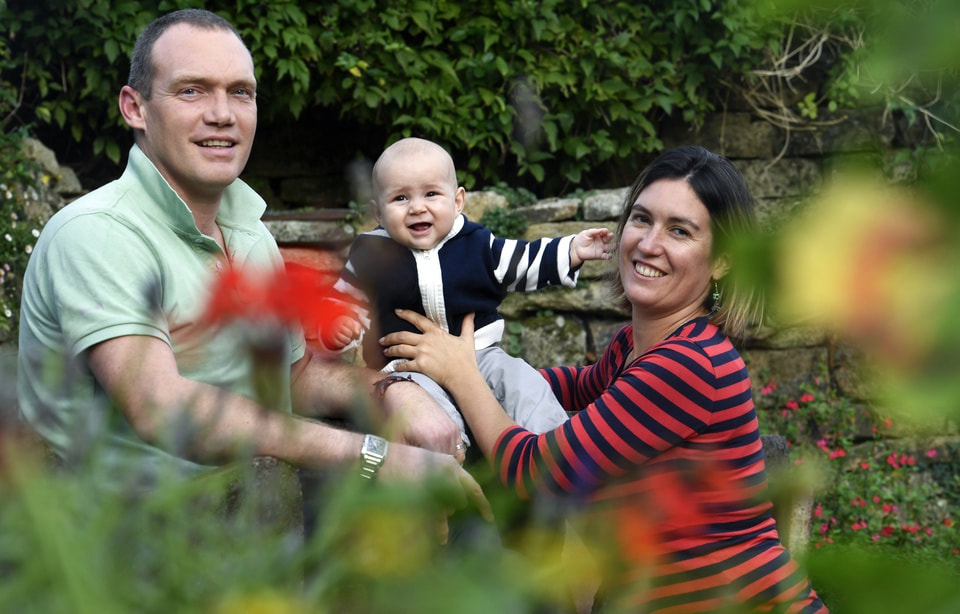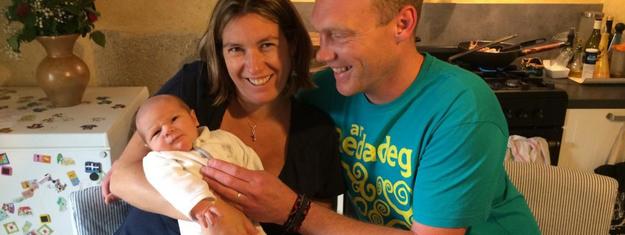|
A young couple from Brittany, France could never have imagined the Breton name they'd chosen for their newborn would create such a judicial firestorm. The use of the name "Fañch" was banned in September 2017 by a tribunal in Quimper stating that the letter "ñ" was incompatible with French law. This initial ruling was brought to a court of appeals by the parents this Monday in Rennes, where the French "avocat général" sadly recommended confirmation of the prior judgment in Quimper. Brittany, the western most peninsula of France, has long had a tradition of un-French sounding names and places names due to the extensive use of the Breton, a celtic language native to the area. French policing of names has lighted since a court ruling in the 1966 allowing Breton names to be officially used administratively. The court ruling in Quimper on September 13, 2017 was surprising to many as Breton names have become very popular throughout Brittany. The bewildering ruling forbid the use of the letter ñ stating, ""would be tantamount to breaking the will of our rule of law to maintain the unity of the country and equality without distinction of origin"*. The letter ñ is common in Breton language but also Spanish, Basque, Galicien, Asturien, Guarani, Tagalog, Hassanya, and Wolof. The court's ruling also stated that ñ was not part of the French language, a reason for it not being used in names. A theory debunked a few days later by Bernez Rouz, President of the Culture Council of Brittany, when he presented numerous official French documents highlighting the use of the letter ñ for centuries, proving it in fact to be part of French orthographic tradition. Following today's appeal the case has been taken under deliberation and a final decision will be rendered on November 19. "We hope for a positive outcome so we can write our son's name as it should," Fañch's mother has stated. "This fight also means defending our heritage, our regional language."
2 Comments
A young couple from Brittany, France could never have imagined the breton name they'd chosen for their newborn would create such a judicial firestorm. The use of the name "Fañch" was banned in September by a tribunal in Quimper stating that the letter "ñ" was incompatible with French law. A decision that has prompted the Regional Council of Brittany to petition the Minister of Justice of France to allow the name. Brittany, the western most peninsula of France, has long had a tradition of un-French sounding names and places names due to the extensive use of the Breton, a celtic language native to the area. French policing of names has lighted since a court ruling in the 1966 allowing Breton names to be officially used administratively. The court ruling in Quimper on September 13th was surprising to many as Breton names have become very popular throughout Brittany. The bewildering ruling forbid the use of the letter ñ stating, ""would be tantamount to breaking the will of our rule of law to maintain the unity of the country and equality without distinction of origin"*. The letter ñ is common in Breton language but also Spanish, Basque, Galicien, Asturien, Guarani, Tagalog, Hassanya, and Wolof. The court's ruling also stated that ñ was not part of the French language, a reason for it not being used in names. A theory debunked a few days later by Bernez Rouz, President of the Culture Council of Brittany, when he presented numerous official French documents highlighting the use of the letter ñ for centuries, proving it in fact to be part of French orthographic tradition. The Region Council of Brittany voted this week to solicit the Minister of Justice to ask for the authorization of the diacritical sign and stating that its use in no way threatens the national unity of France. The September 13th court decision is currently being appealed but the affair seems to have many in France questioning why only one official language is recognized in a Republic.where many others are native to the country. |
Categories
All
Blog Archives
June 2024
Breizh Amerikais an organization established to create, facilitate, promote, and sponsor wide-ranging innovative and collaborative cultural and economic projects that strengthen and foster relations and cooperation between the United States of America and the region of Brittany, France. |
Copyright 2014 - All rights reserved - Breizh Amerika - Privacy Policy


 RSS Feed
RSS Feed

